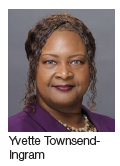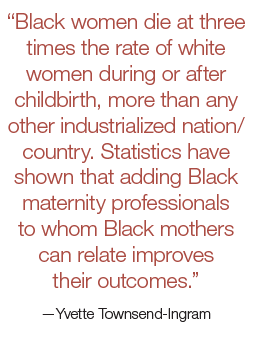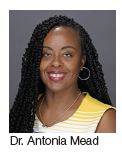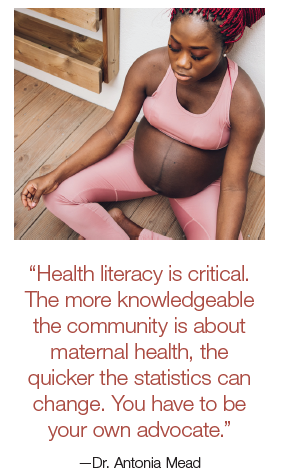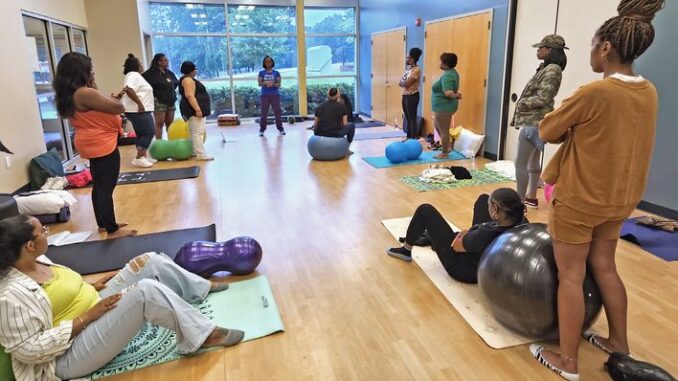
Changing the narrative of Black maternal health
By Sasha Manley
It’s no secret. We are in a black maternal health crisis. These issues stem from a lack of proper care, resources, and discrimination. Many mothers have chosen home births and other forms of alternative care to lessen their chances of complications, hoping for more advocacy and better health for their newborns.
To help reduce the occurrence of high Black maternal health mortalities and to support the healthy birth and growth of Black babies, Johnson C. Smith University is offering a much-needed program. The school’s Birthing Professionals Program (BPP) provides student birth workers with the education to aid in the black maternal health field. It includes doula and lactation courses aimed at having more assertive representation and improving the outcome of deaths and care of mothers of color.
The program’s goal is to improve maternal and child outcomes of families of color by making birthing professional training for people of color more accessible.
The American Rescue Plan Act of 2021 allocated nearly $1 million in grant funding to support JCSU’s birthing program. Last fall, the university submitted a proposal for a grant to the Mecklenburg Board of County Board of Commissioners and received $943,000 to specifically address Black maternal health, Townsend-Ingram said.
Meeting the need
The shocking numbers don’t lie. According to the Centers for Disease Control and Prevention, black women are more than three times more likely to die during childbirth. In 2020, Black women experienced 55.3 deaths per 100,000 live births, compared to 19.1 deaths per 100,000 live births, and 18.2 deaths per 100,000 live births for White and Hispanic women, respectively, according to the Centers for Disease Control and Prevention.
Yvette Townsend-Ingram, Director of Foundation Relations at JCSU and co-writer of the grant, explained why this program is vital. Townsend-Ingram gives administrative support to execute the grant. “JCSU is acting to contribute solutions to a critically important disparity in maternal health,” she said.
She goes on to share staggering statistics, “Black women die at three times the rate of White women during or after childbirth, more than any other industrialized nation/country. Statistics have shown that adding Black maternity professionals to whom Black mothers can relate improves their outcomes.”
Dr. Antonia Mead, Professor/Department Chair in Health and Human Performance at JCSU, explains why this program goes beyond the classroom: “Health literacy is critical. The more knowledgeable the community is about maternal health, the quicker the statistics can change. You have to be your own advocate.”
Additionally, the representation of black professionals in this field is scarce. The HBCU aims to change these staggering numbers with its doula and lactation program.
According to the JCSU website, the goal of the lactation program is to “help diversify the field of lactation to include more people of color, positively impact health outcomes and help address breastfeeding and health disparities and inequities.” Funds are being used for salaries, operational expenses, materials and student scholarships.
Giving knowledge
The birthing program has three concentrations: Childbirth Educator, Birth Doula, and Lactation Consultant.
Advocates and Black mothers have voiced their concerns about pregnancy and birthing experiences. The BPP has formed a curriculum with these concerns in mind. Some topics the program offers are Informed Consent, Labor Support, Anatomy and Physiology of Pregnancy and Birth, Patient Advocacy and Labor Variations, and Medical Interventions.
Students who complete the Lactation Consultant Certificate program are eligible for the exam given by the International Board of Lactation Consultants Examiners — the International Board of Certified Lactation Consultant (IBCLC) exam.
Because of the severity of the black maternal crisis, Mead said the program is open to “anyone who has a sincere interest in changing the maternal health demographics.”
Fruits of the program
According to a January 2022 Women’s Impact Fund article, many BPP graduates are now working in the community. One graduate is working as an EMT, and another graduate is helping to build the Mecklenburg County Health Department’s perinatal educator program.
The BPP administrators and instructors are hopeful that changing the narrative now by educating future birth workers will have positive results. Mead said she believes resources will increase. She said the Black Professional Birthing program will hopefully make more certified doulas, childbirth educators, and lactation consultants available in the community.
She also shared how the community can advocate and help. “Continue to ask for birth birthing professionals. Continue to speak up when something isn’t right,” she said. The current statistics are alarming, but Mead said, she hopes this will be a thing of the past.

